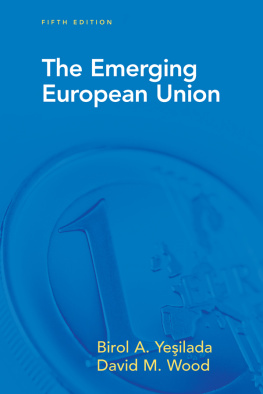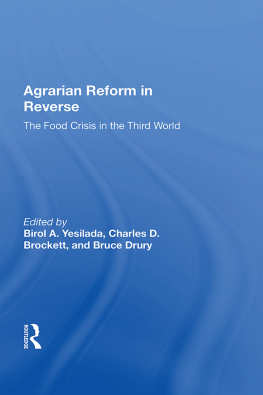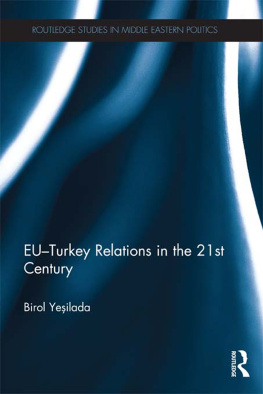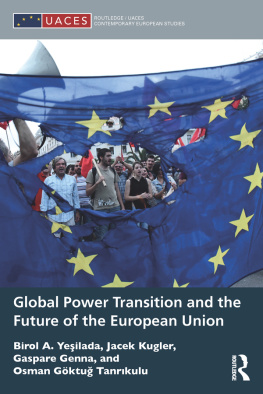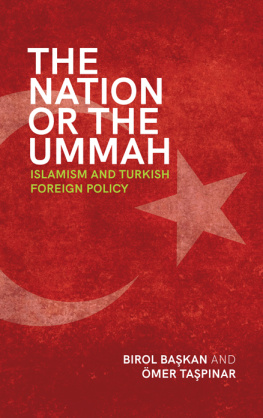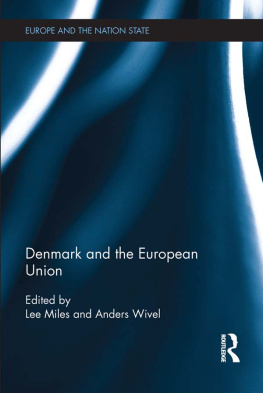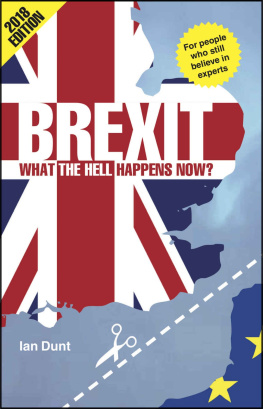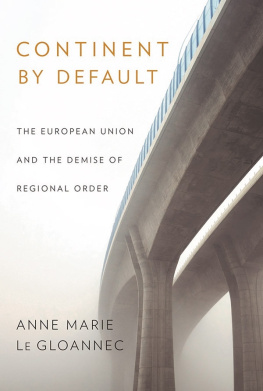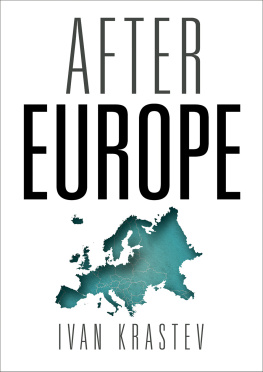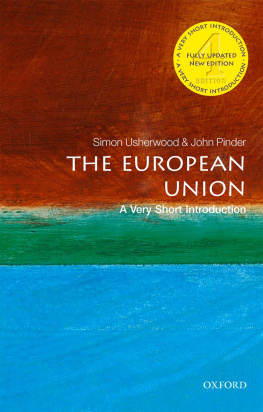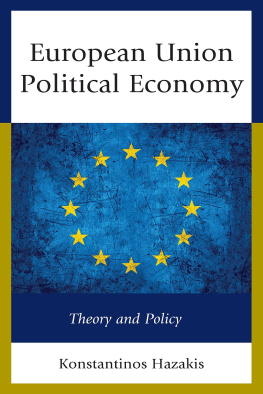If youre wondering why you should buy this new edition of The Emerging European Union, here are 10 good reasons!
A new chapter on public opinion provides the most up-to-date data on the perspectives of Europeans throughout the union.
This text covers the eastern enlargement of the European Union with information on new member countries like Romania and Bulgaria, as well as accession talks with Turkey and Croatia.
The authors explore the Treaty of Lisbon and the effects it will have on institutions and citizen participation in the European Union.
Especially in todays world, understanding economic systems is important. This book gives you the latest European Union budget and analyzes the allocation of its resources.
In addition to giving you insight into the global economy, this book also discusses the external economic relations of the European Union with countries like India and China.
Critical thinking questions added at the end of each chapter will help you apply different theoretical perspectives on what you have read about the European Union.
This book addresses the current state of transatlantic relations and considers the war on terrorism and the war in Iraq.
The authors frame the book as a study of the European Union as an experiment; their introductory, concluding, and end-of-chapter questions will help you understand the current state of the experiment.
The authors provide ample current examples to highlight key developments and include figures and tables with the latest data.
This book also includes expanded discussion of the European Unions environmental policies to address greenhouse gas emissions and the Kyoto target.

Europe
European Communities, 19952009
Source: http://europa.eu/abc/european_countries/index_en.htm or http://europa.eu/abc/maps/print_index_en.htm
FIFTHE DITION
The Emerging European Union
Birol A. Yeilada
Portland State University
David M. Wood
University of MissouriColumbia
For Susan and Mary
First published 2010 by Pearson Education, Inc.
Published 2016 by Routledge
2 Park Square, Milton Park, Abingdon, Oxon OX14 4RN
711 Third Avenue, New York, NY 10017, USA
Routledge is an imprint of the Taylor & Francis Group, an informa business
Copyright 2010 Taylor & Francis. All rights reserved.
All rights reserved. No part of this book may be reprinted or reproduced or utilised in any form or by any electronic, mechanical, or other means, now known or hereafter invented, including photocopying and recording, or in any information storage or retrieval system, without permission in writing from the publishers.
Notice:
Product or corporate names may be trademarks or registered trademarks, and are used only for identification and explanation without intent to infringe.
Credits and acknowledgements borrowed from other sources and reproduced, with permission, in this textbook appear on appropriate page within text.
ISBN: 9780205723805 (pbk)
Cover Designer: Bruce Kenselaar
Library of Congress Cataloging-in-Publication Data
Yesilada, Birol A.
Emerging European union/Birol A. Yesilada, David M. Wood.5th ed.
p. cm.
Woods name appears first on earlier editions.
Includes bibliographical references and index.
ISBN-13: 978-0-205-72380-5 (alk. paper)
ISBN-10: 0-205-72380-2 (alk. paper)
1. European Union. 2. European federation. 3. European Union countriesEconomic policy.
4. European Union countriesForeign relations.
I. Wood, David Michael, 1934- II. Title.
JN30.W66 2010
341.2422dc22
When we look at world events, it is quite evident that the European Union (EU) plans to become an influential and powerful global actor. From the Maastricht Treaty to the Lisbon Treaty, the EUs recent enlargement and the further deepening of integration among member states underline this goal. Yet, the road ahead is not an easy one. The decision of the EU to expand its membership to the Central and East European countries represents the largest and perhaps the most difficult expansion proposal in the EUs history. The implications of this enlargement are significant for the EU in terms of political, economic, and security interests and for the future stability of Europe. As the EU positions itself to become a global actor in the international sphere, its leaders and citizens contemplate future enlargement and the implications of such enlargement, for example, the inclusion of Croatia, Macedonia, Serbia, and Turkey. Recent developments in France and the Netherlands where voters rejected the proposed EU constitution cast doubt over further deepening of economic and political integration. Is this a sign of a growing gap between EUs political elites and citizens? Eurobarometer surveys suggest that there might be some truth behind this gap and that it might affect future plans of European leaders. However, a series of reports from the Commission (Agenda 2000) and the signing of the Lisbon Treaty in December 2007 suggest that the EU leaders are quite determined to push forward with further deepening of regional economic and political integration among member states. Without further integration, the EU will not attain the full benefits of economic and monetary union (EMU), nor will it maximize improvement of quality of life for its citizens. Enlargement, on the other hand, assures peace and stability in volatile areas of Europe and paves the road ahead for better understanding between peoples of member states. Together, this dual goal of European leaders aims at making the EU a powerful and influential global actor on the world scene. So, the future of the EU promises to be as lively and exiting to EU watchers as it has been for the last five decades.
We first began to look at European integration in 1988 when very few academics or policymakers in the United States were paying attention to events across the Atlantic. The economic crisis of the 1970s and the slowing down of regional integration in the European Community (EC) had dramatically reduced academic interest in this topic. Ernst Haass The Obsolescence of Regional Integration Theories was a good example of the state of affairs in the field of European integration. At that time, most pioneers of EC integration had given up hope for future of the Community as a world economic crisis took its toll on everyone concerned. One after another, member states governments opted for nationally secure policies in dealing with economic recession at the expense of what might have been necessary to hold EC together. The failure of the snake-in-a-tunnel regional monetary policy is perhaps the best example of this state of affairs. Yet, there were a few scholars like Ronald Inglehart and Roy Pierce who kept probing and looking for answers to this sudden surge of integration that got jump-started with the Single European Act and Project 1992. Initially, we were not among these few EC followersat least, not until we got together following my 11-month research leave in Europe in 1987. During that time, I witnessed events that made me a total believer in the future of the European experiment. One of these events was a conference in Istanbul where academics and officials from the EC, NATO, and European states discussed the future of Europe. I could not help but notice that Europe meant different things to different people. When NATO officials talked about it, they referred to the Western Alliance. When EC officials talked about it, they referred to something much bigger. When academics talked about it, they fell somewhere in between. As I continued my research, I began to realize that something was indeed becoming a reality in the form of a new economic and political power in Europe that would shape the future of global power transition.




